PRESS RELEASE 23rd August 2019
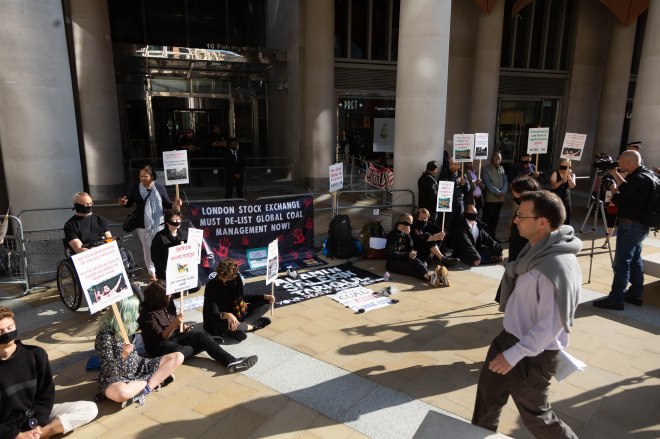
Phulbari Day Black Vigil and protest at London Stock Exchange, 23 Aug 2019. Photo credit: Dovydas Vilimas
Dramatic protests took place at the London Stock Exchange today as scores of police blocked off both entrances to the London Stock Exchange with barriers and police lines in an attempt to stop protesters entering the building. The protesters, wearing all black, held a vigil outside the blocked entrance in commemoration of the massacre of three teenage boys during a non-violent protest against AIM listed Global Coal Management Resources plc (GCM) by communities around a proposed coal mine in Phulbari in 2006. Further protests are being held in Bangladesh on the official Phulbari Day on Monday 26th August.
The UK protest was organised by the Phulbari Solidarity Group , Reclaim the Power, and the UK Committee to Protect Natural Resources in Bangladesh with a coalition of other organisations. Protesters echoed calls in their letter to Chief Financial Officer of the LSE, David Warren, demanding that GCM is investigated and de-listed from the London Stock Exchange for fraudulent and criminal activities.
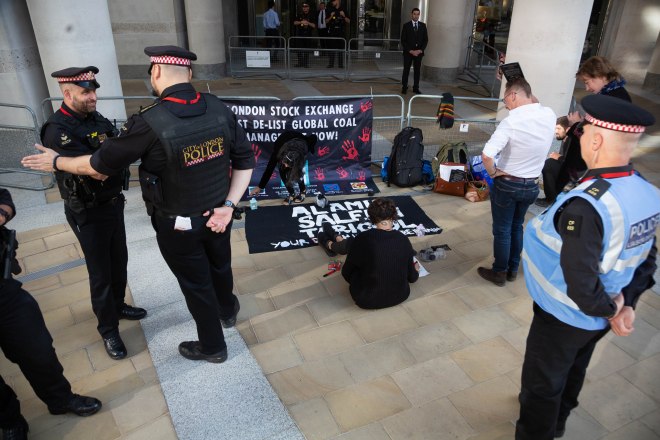
Protesters ignoring police barricade pay tribute to Amin, Salekin and Tarikul during Black Vigil outside of London Stock Exchange at 9am on 23 Aug 2019. Photo credit: Dovydas Vilimas
The protesters in London targeted David Warren personally, asking him to come and meet them and demanding that he take their complaints seriously and immediately de-list GCM. They shouted “London Stock Exchange, shame on you!” “London Stock Exchange is a crime scene”; and “David Warren – blood on your hands” during the protest which lasted over five hours with many onlookers throughout. A survivor and eye witness of the 2006 massacre spoke passionately about the ongoing suffering and harassment of people in Phulbari GCM Resources.
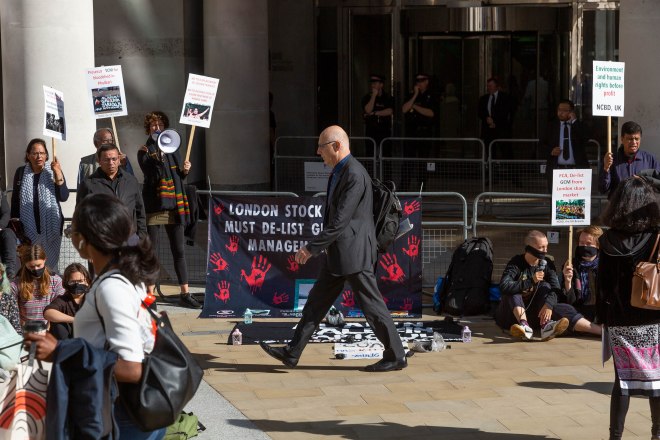
Protesters chanting slogan shaming David Warren at LSE. Phulbari Day Black Vigil at London Stock Exchange. Friday 23 Aug 2019. Photocredit: Dovydas Vilimas
Deputy leader of the Green Party in England and Wales, Amelia Womack, who attended the demonstration, said:
The Phulbari coal project symbolises a threat to people, lives and human rights in Bangladesh. We stand with the protesters demanding that the London Stock Exchange de-list GCM Resources for their violations.

Protesters paid tribute with Red and White roes to Amin, Salekin and Tarikul during Phulbari Day Black Vigil at LSE. Friday, 23 Aug 2019. Photocredit: Fossil Free UK.
Natalie Bennett, politician and former leader of the Green Party of England and Wales said:
I am proud to stand in solidarity with campaigners in Bangladesh campaigning against the Phulbari Coal project, as well as in remembrance of those massacred in 2006 while standing up for their rights. There should be no place in the London Stock Exchange for companies creating such immense harm to our environment and international community.
She added, We all need to take action to ensure we remain below 1.5 degrees of warming, and that includes the LSE. There is no place for open cast coal mining in the fossil fuel future this planet demands.
The London rally is co-hosted by a wide coalition of groups including Extinction Rebellion International Solidarity Network, Foil Vedanta, Extinction Rebellion Youth, Reclaim the Power and Christian Climate Action.
Meanwhile in Bangladesh, indigenous communities and thousands of anti-mine activists will commemorate the lost lives by forming Red and Black vigils under the banner of National Committee to Protect Oil, Gas, Mineral Resources, Power and Ports in Bangladesh on 26th August. The communities and families of victims will pay tribute with flowers to the memorial of the three dead at the Phulbari Memorial. The vigils demand that government must ban open cast coal mine, that Phulbari Day must be declared as the National Fossil Free Energy Day and government should implement the Phulbari Day Verdict by taking legal action against GCM immediately.
On 26 August 2006 three boys Al Amin (11), Mohammad Salekin (13) and Tarikul Islam (18) were shot dead, and more than two hundred injured in a non-violent demonstration of 80,000 people against plans for an open cast coal mine by GCM’s subsidiary Asia Energy. The eight million ton mine would forcibly displace 130,000 people from Phulbari in northwest Bangladesh. Construction of the plant is dependent on approval from the Bangladeshi government who previously shelved plans for the development following huge protests. Subsequently GCM’s CEO Gary Lye has filed multiple cases against 26 community organisers in Phulbari and Dinajpur claiming he has felt ‘harassed’ when he visited the area in an attempt to continue coal mining plans in 2014.
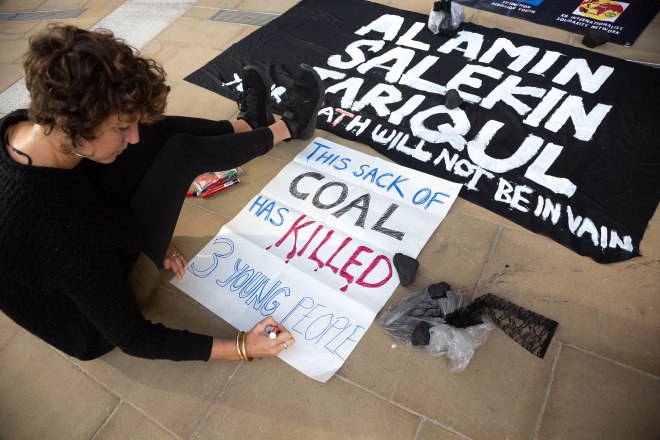
A protester is writing the names of the three dead in Phulbari shooting, Amin, Salekin and Tarikul during the Black Vigil outside London Stock Exchange. Friday 23 Aug 2019. Photo credit: Dovydas Vilimas
S.M. Nuruzaman, a survivor of Phulbari shooting and a local community organiser of the 2006 Phulbari Day protest in Phulbari says:
GCM is a fraudulent and murderer company who killed three of our young people for simply watching over a non-violent demo. The company’s CEO, Gary Lye, laughed after the killing on television. They bribed our police and border security guards to kill us and poison our society. They created violence which left three killed and 220 injured even before the company was awarded approval for mining in our Phulbari. They do not have a license, there is no project in Phulbari. We halted the mine 13 years ago. But GCM are selling shares in London Stock Exchange in the name of Phulbari. They continue abusing us. GCM’s arbitrary court cases against myself and 25 other community organisers in Phulbari claimed 1billion taka (BDT 100 crore) for so called harassments that Gary Lye and his men faced after they killed people in Phulbari. 9 of the 11 cases against me have already been dismissed by the courts. We want justice in our fight against this criminal company which has destroyed so many lives already.
Protests are ramping up in the UK following 13 years of campaigning for GCM to be de-listed from the LSE. Responding to the massacre and widespread protests, the Bangladeshi Government declined to renew the GCM subsidiary Asia Energy’s license to extract coal from Phulbari in 2010. Despite aggressive lobbying and public claims that they have government approval for coal extraction, GCM continues to have no valid contract with the Bangladesh government. However GCM recently announced a strategic partnership with two Chinese firms – China Nonferrous Metal Industry’s Foreign Engineering and Construction Company (NFC) and Power Construction Corporation of China (PowerChina) to develop the mine, which created a hike in its share price. GCM has no other operation or assets, yet the company continues to sell shares on the LSE on the basis of the Phulbari coal project.
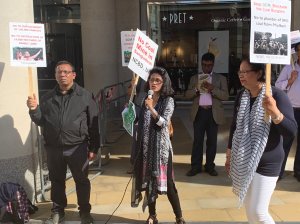
Rumana Hashem, an eye witness to the Phulbari shooting who survived the vioence in 2006, describes the brutality that GCM’s Bangladesh subsidiary Asia Energy has been involved in Phulbari. Phulbari Day Black Vigil at London Stock Exchange. Friday, 23 Aug 2019. Photocredit: Fossil Free UK
A letter from twelve leading campaigning organisations from the UK, Europe and USA was sent to LSE Financial Director David Warren asking that the London Stock Exchange de-list GCM by Phulbari day. The letter details the company’s fraudulent selling of shares on the UK stock exchange without any viable project or permission to mine in Phulbari, as well as harassment of activists in Bangladesh. The letter points out that GCM is one of a string of London listed mining companies linked to the murder or ‘massacre’ of protesters, including Lonmin, Glencore, Kazakhmys, ENRC, Essar, Vedanta, Anglo Gold Ashanti, African Barrick Gold and Monterrico Metals. It notes the failure of the Financial Conduct Authority or the London Stock Exchange to investigate or penalise any London listed mining company on these grounds, and notes that this is bringing the LSE into disrepute.
Rumana Hashem from Phulbari Solidarity Group in London, who was present at the 2006 demonstration, says:
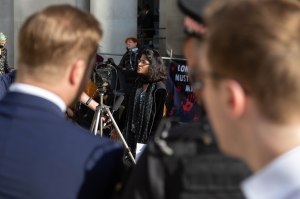
Dr Rumana Hashem explains to journalists and police why it is legitimate to blockade the London Stock Exchange. Phulbari Day Black Vigil at London Stock Exchange. Friday 23 Aug 2019. Photocredit: Dovydas Vilimas
London Stock Exchange is complicit in the criminal activities of GCM by allowing them to retail shares and cheating on ordinary people for a decade. I have witnessed Asia Energy’s violence in Bangladesh, heard the cries of the victims and seen tears of non-violent protesters who were injured in GCM’s inflicted violence in one of Bangladesh’s most harmonious, flood protected and green place. GCM want to destroy the region and livelihood of the people in Phulbari. GCM’s CEO Gary Lye has been targeting local opponents. They must be held to account.
The vigil was attended by the deputy leader of the Green Party in England and Wales – Amelia Womack, the coordinator and activists of the London Mining Network, and activists from Fossil Free UK, 350.org UK, Decolonising Environment, Disability Climate Action, Extinction Rebellion London, Marikana Solidarity and others.
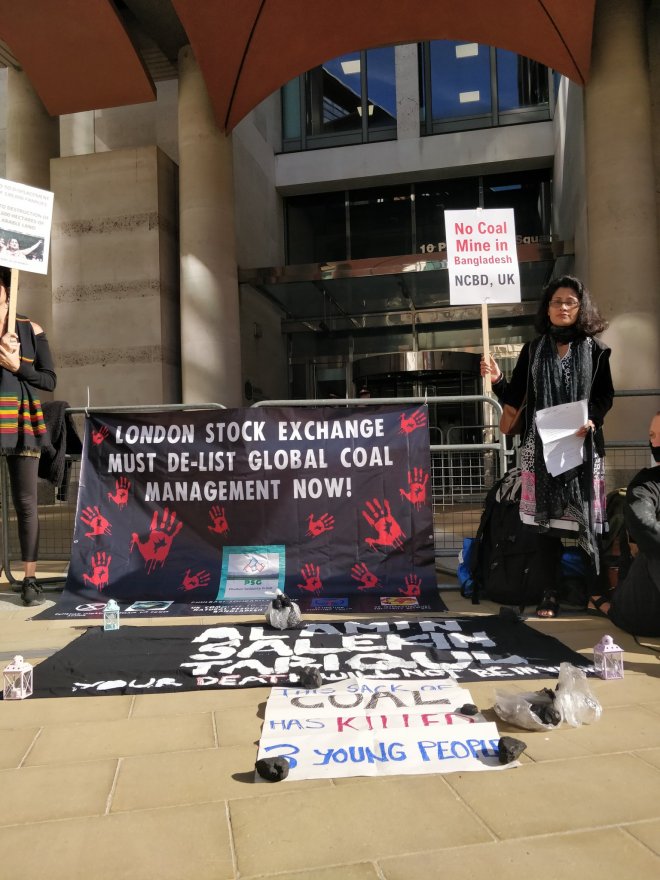
Rumana Hashem and Miriam Rose of Phulbari Solidarity Coalition led the protest at the main entrance of the London Stock Exchange, London. Friday, 23 Aug 2019. Photo credit: Paul Dudman
Akhter Khan from the Committee to Protect Resources of Bangladesh – UK branch, says:
We demand that London Stock Exchange must de-list GCM as the company do not have valid license to conduct business in Phulbari. LSE must not allow GCM’s deceitful money grabbing from the share market.
Kofi Mawuli Klu from Extinction Rebellion International Solidarity Network UK says:
XRISN-UK stands with the Phulbari Solidarity Group, the National Committee and all Environmental Justice campaigners in and outside Bangladesh in solemn remembrance not only of those martyred but also of those who survived to continue fighting up till now for real Change for a better World! It is with the blood of the heroic likes of the Phulbari martyrs that our XR International Rebellion is fuelled; and this gives us the assurance that the Struggle will continue relentlessly through the turbulence of this dangerous time of Climate and Ecological Emergency; it will continue till we overcome to usher in the victories they deserve.
#BlackVigil #CoalMurder #PhulbariDay
For Further information on the Black vigil, Phulbari massacre and GCM’s lies check out:
Video clips from the Black vigil by Jason Parkinson is available here: https://jasonnparkinson.com/2019/08/23/protestors-demand-london-stock-exchange-de-list-uk-mining-company/
A short film by Helen Brews is accessible in this link: https://youtu.be/jTBnAWl_bVQ
- GCM provides false information and Bangladesh Government will take legal action against GCM – by Arifuzzaman Tuhin: The Daily Prothom Alo, 24 August 2019
- Protesters demand London Stock Exchange delists mining company: Morning Star, 23 August 2019.
- Phulbari day observed in Bangladesh: The New Age, 27 August, 2019.
- Vigil held in front of London Stock Exchange – 350.org report
- Protests planned at London Stock Exchange over links to massacre in Bangladesh: Morning Star, 21 August 2019.
- Govt mulls stopping Asia Energy’s activities in country – by Manjurul Ahsan: New Age, 9 December, 2014:http://www.newagebd.net/74878/govt-mulls-stopping-asia-energys-activities-in-country/#sthash.mWNPG6Xu.W0jEZXnK.dpbs
4. Video footage of killings in Phulbari: https://phulbarisolidaritygroup.blog/videos/
5. Facts about Phulbari coal project at a glance: https://www.banktrack.org/download/the_phulbari_coal_project/iap_factsheet_footnotes_the_final_0.pdf
6. A copy of the letter to LSE Chief Financial Officer David Warren can be found at this url: https://wp.me/p2ZU1R-ql

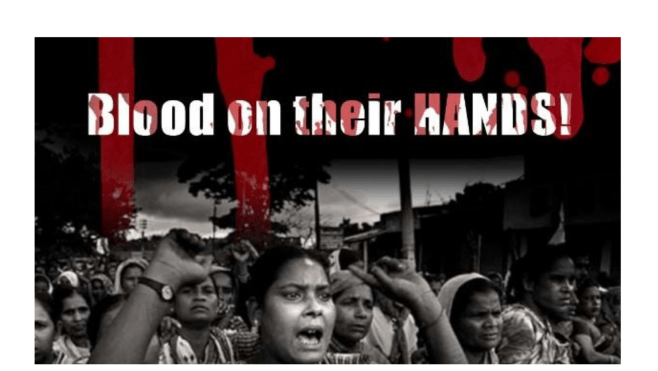
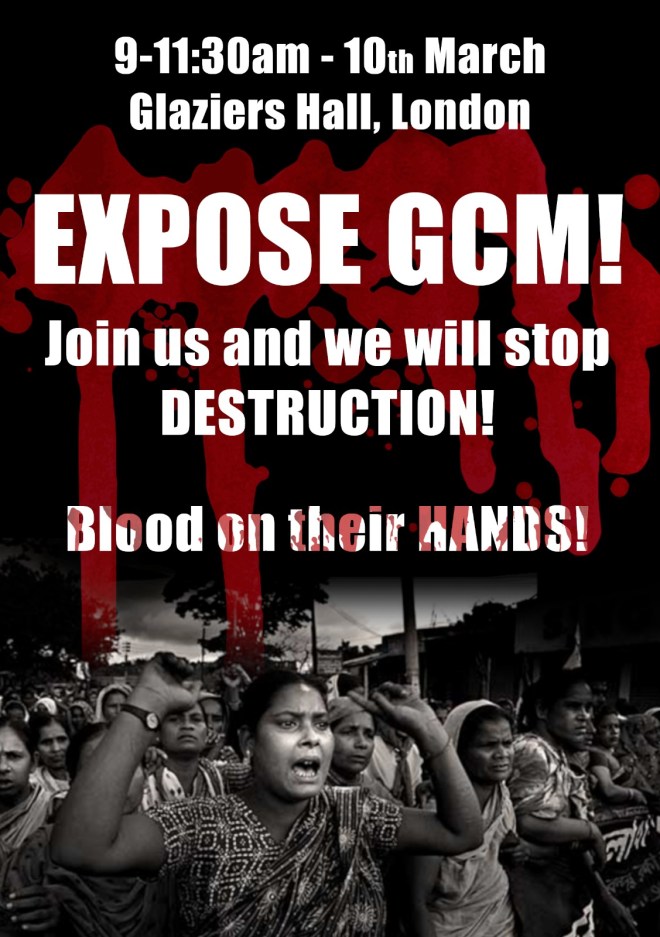
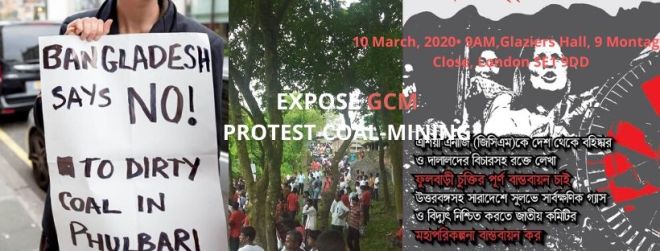
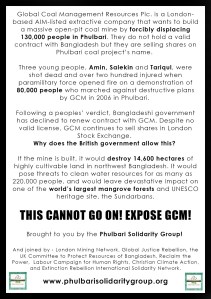
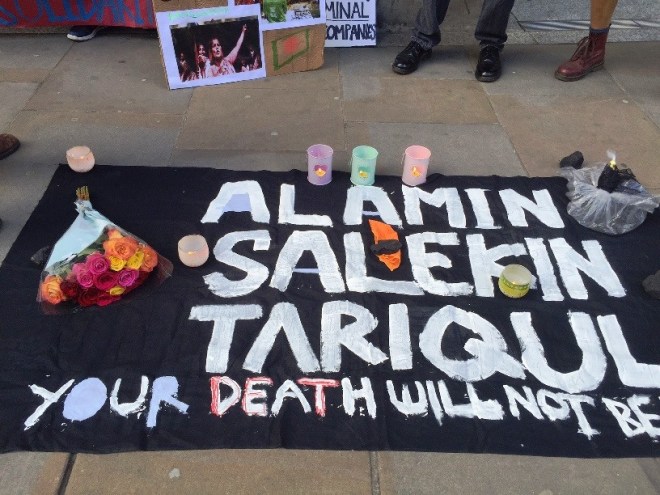

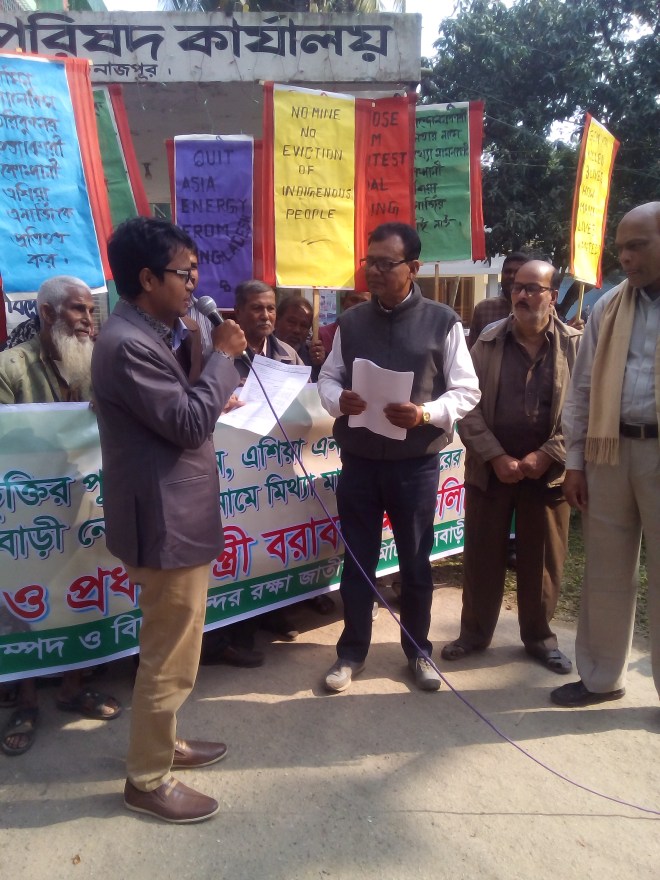

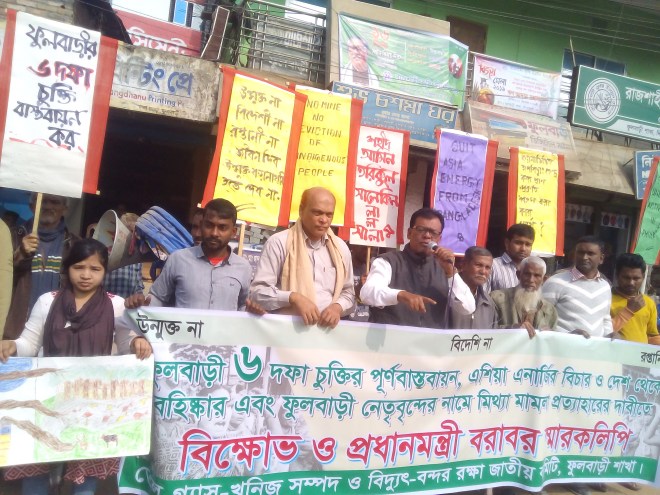
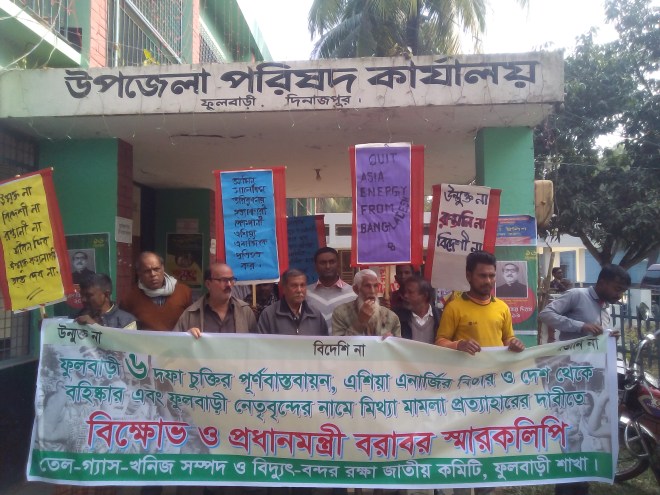
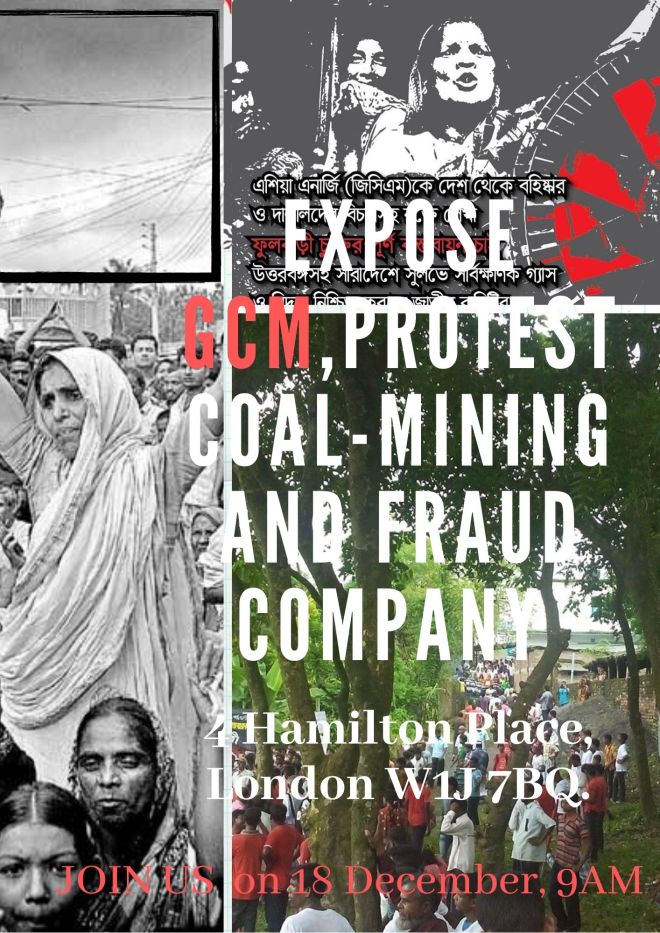
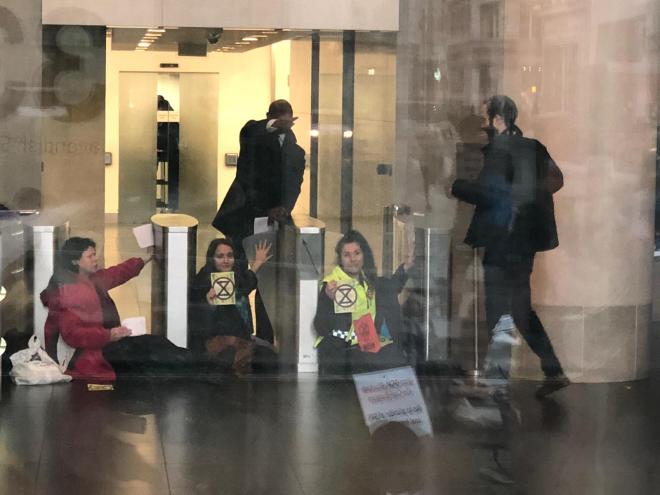
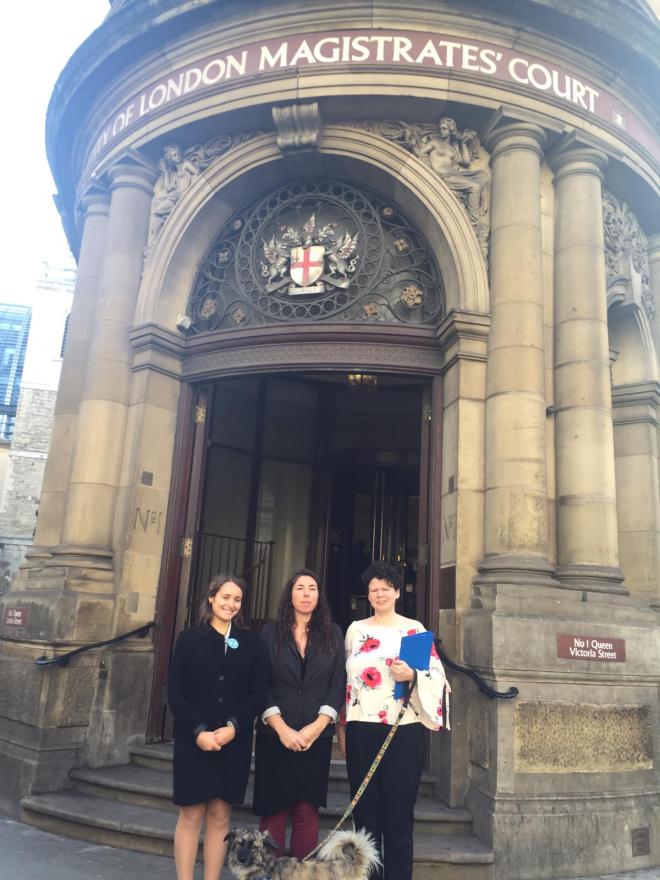
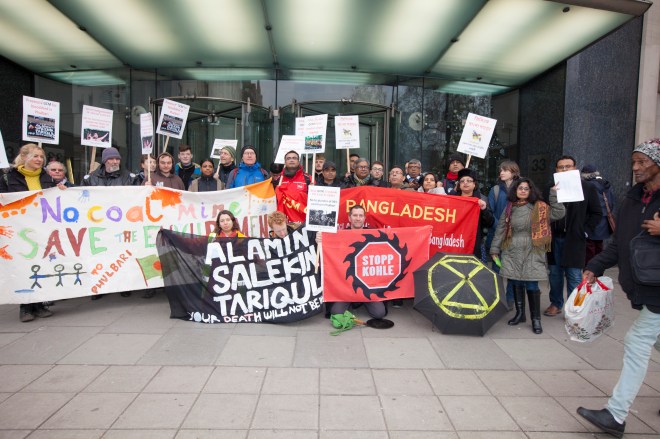
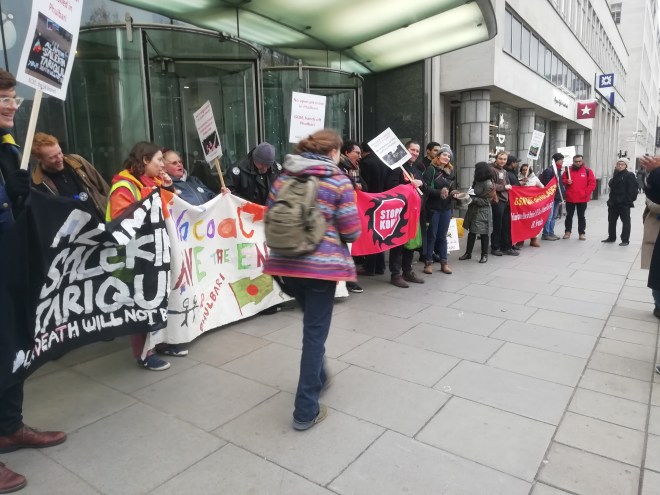

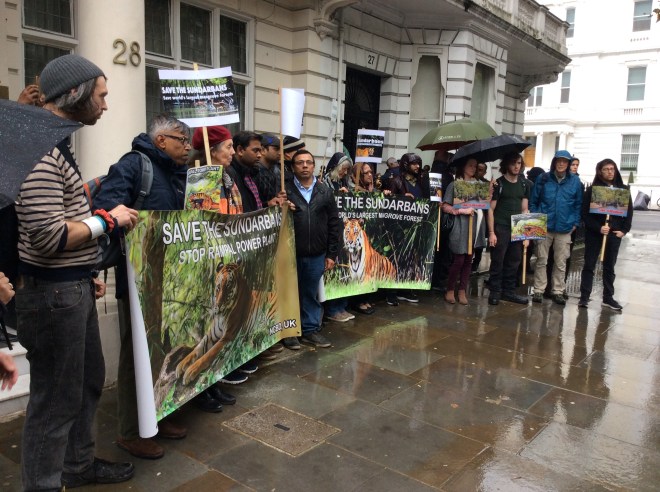
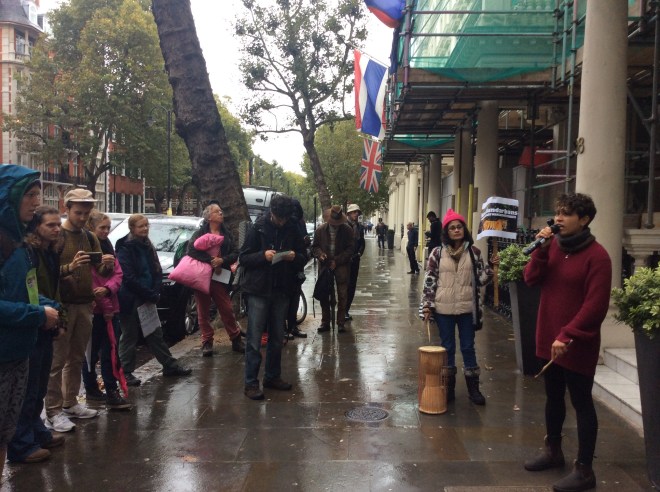
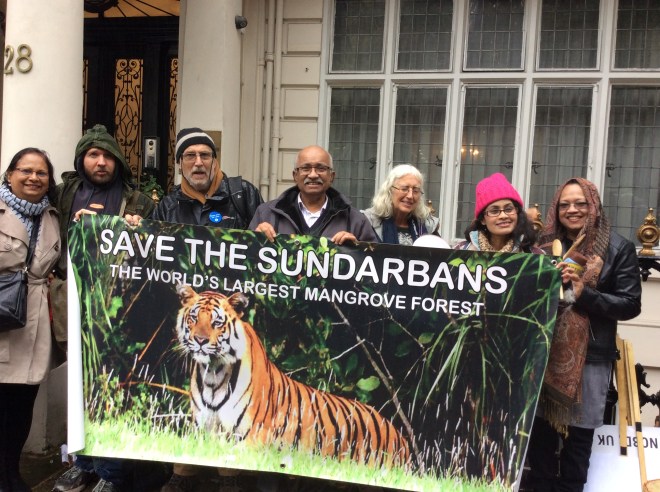
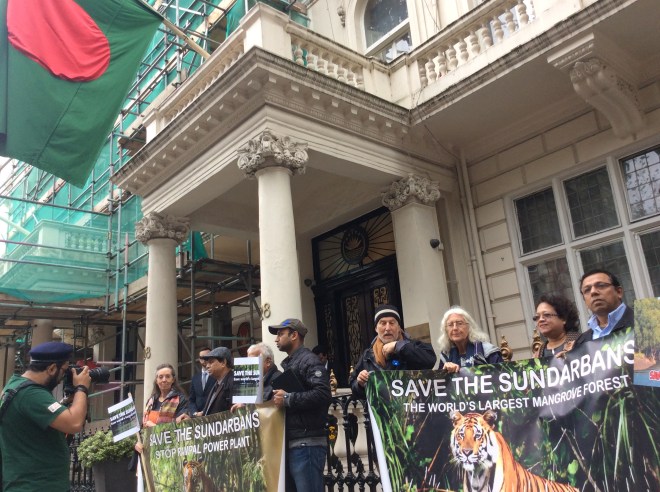
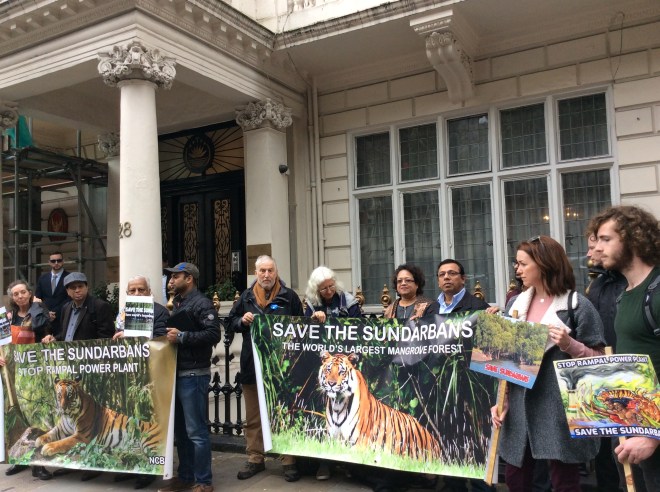
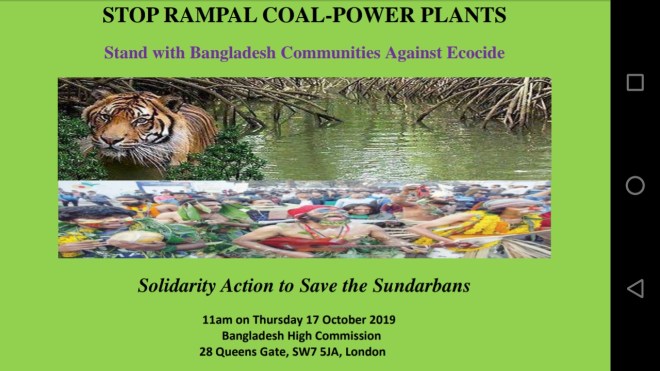
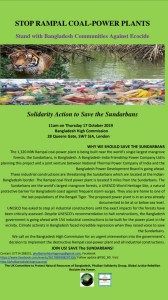








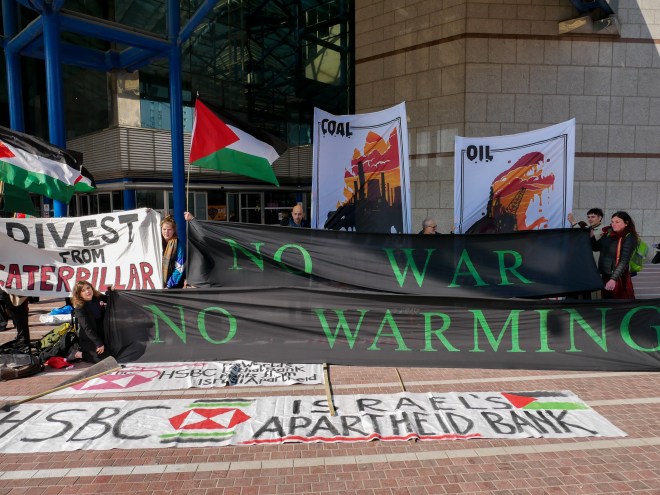
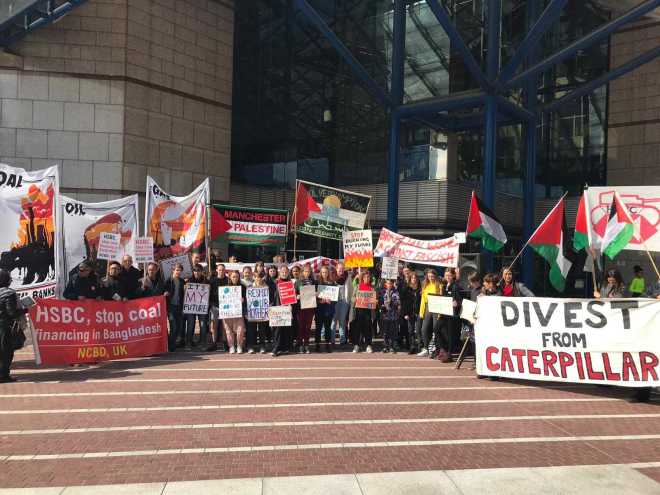
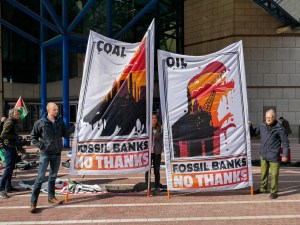
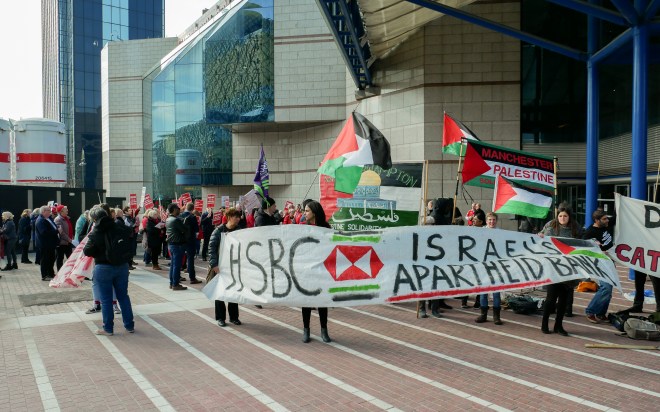
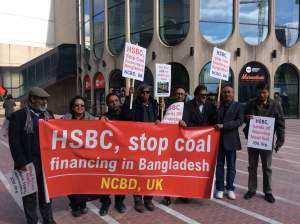
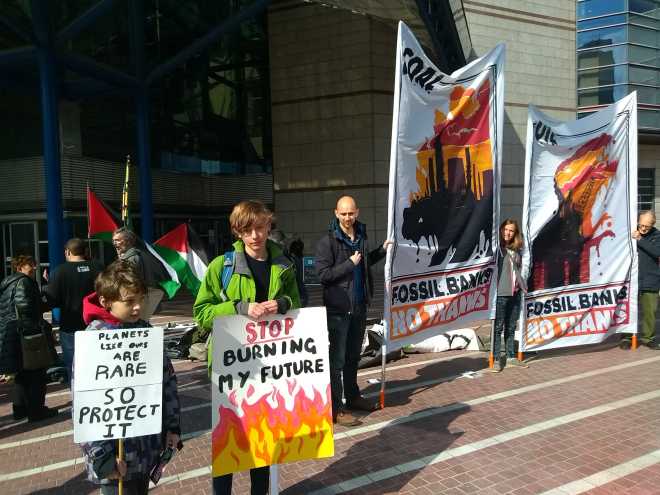
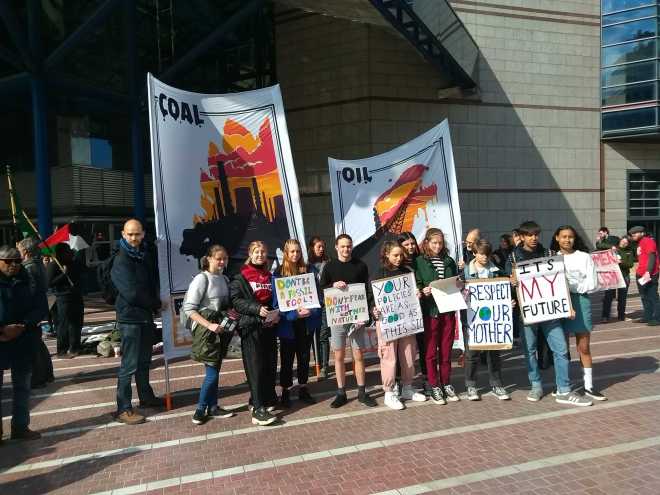
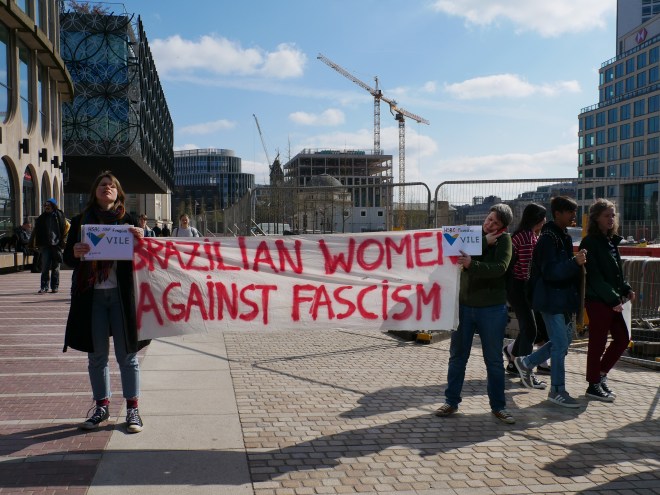
You must be logged in to post a comment.